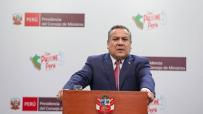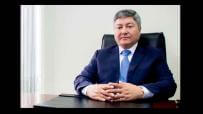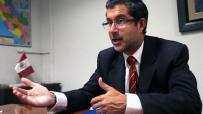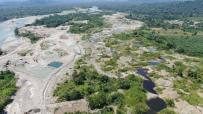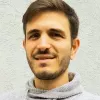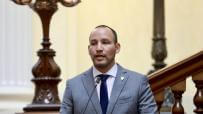
The Chinese laboratories Sinopharm, Cansino and Sinovac sent thousands of additional doses of their experimental vaccines to three Latin American countries as part of their clinical trials, reveals the analysis of a database built by OjoPúblico with information from four countries in the region. Although studies in Argentina, Chile and Peru required 24 thousand vaccines altogether to apply to their volunteers, the customs registry reveals that more than 13,500 additional doses were entered from China. This figure represents an excess of 55% over the vaccines needed for such research.
These extra doses of Sinopharm were used by Peruvian researchers to vaccinate politicians, businessmen and their families in Peru, while Cansino offered to inoculate the researchers in charge of the clinical trial in Chile. This last laboratory also showed irregular vaccinations in Mexico, although Mexican portals are not transparent enough to know the number of excess vaccines that entered that country. In Argentina, in turn, the researchers acknowledged that there were plenty of vaccines left from their clinical trials, and assure they are stored.
The 13,500 mentioned doses entered these countries in 2020, while clinical trials of these vaccines against Covid-19 were being conducted. OjoPúblico built a database with the customs registry of Argentina, Chile and Peru, and interviews with the representatives of each research center. The doctor in charge of the study in Peru, Germán Málaga, had already acknowledged a few months ago the shipment of these additional batches, and that the offer to vaccinate the staff in charge of the studies was a common practice of Chinese laboratories during the pandemic.
A Peruvian doctor revealed that the offer to vaccinate the staff was a common practice".
The offer of irregular vaccinations to public officials and celebrities occurred within the framework of the negotiations of the Governments of Latin America with these pharmaceutical companies. Sinopharm has signed a trade agreement to supply these biological products to four countries in the region, including Argentina and Peru. Chile and Mexico, in turn, have purchased vaccines from Cansino and Sinovac. The latter is also a supplier to seven other countries in the region. Argentina finally closed an agreement to purchase Cansino's vaccines last week.
Sinopharm was the first of these Chinese laboratories to export additional vaccines as part of its clinical trials in Latin America. Last September, a subsidiary of this pharmaceutical company sent an additional 3,200 doses to Peru as part of its study, but they were used to inoculate public officials, such as then-President Martin Vizcarra and his relatives; former Health Minister Pilar Mazzetti and Foreign Minister Elizabeth Astete; as well as state providers, private doctors, a religious authority, and a well-known lobbyist.
Sinopharm also sent additional doses for its study in Argentina. "They always send a some more doses, just in case," said researcher Pedro Cahn of Fundación Huésped. In this case, Cahn has acknowledged that there were plenty of vaccines left from his trial and claimed that they are stored. Even though other countries know how many volunteers received a vaccine and how many, placebo; Cahn said they ignored this information of the clinical trial carried out in Argentina; while Laboratorio Elea Phoenix, the company that imported the doses from Sinopharm, did not provide further details on their import.
Cansino also sent extra doses for its trials in Latin America. Chile, for example, received 1,281 more vaccines than were needed for its study. Bopal SA, a sponsor of the trial in Chile, acknowledged that the laboratory offered to vaccinate the staff in charge of the study. "It's like an optional addition that, eventually, can be evaluated," Pablo Garcia, a representative of Bopal, told OjoPúblico. These additional doses, according to Garcia, are stored in the facilities of a partner company.
In Argentina, Cansino had an excess of 1,215 vaccines for its clinical trial. These doses -like those from Sinopharm- are stored and will be used in a new study for patients with HIV, according to Pedro Cahn. In this case, the import of the vaccines was in charge of Fundación Huésped, sponsor of the study. In December 2020, this company imported 3,000 vaccines from Cansino, 68.1% more than the 1,785 doses needed. Cahn, who is a presidential adviser, said he did not know the exact number of excess vaccines.
In Mexico, Cansino's clinical trial was conducted by Epic Research, a company that was not known in the media, according to researchers consulted by OjoPúblico. Although the excess of imported vaccines is not known, due to the lack of transparency of the Mexican Government, the local media revealed that a group of senior public officials, artists, and their families were vaccinated irregularly as part of this study. This list included celebrities such as Mexican singers Vicente and Alejandro Fernández.
Finally, Sinovac, sent additional doses to Chile. In this case, OjoPúblico determined that 7,900 vaccines were left over, according to the Chilean government's customs registry. This figure represents an excess of 171%, the highest figure of the clinical trials analyzed for this publication. "No one was enrolled [in the study] because of their position," said researcher Katia Abarca of the Pontificia Universidad Católica de Chile, responsible for Sinovac's trial. According to Abarca, these vaccines will be used in a trial with underage participants.
The vaccines of Sinopharm – a Chinese state enterprise – and of the private laboratories Cansino and Sinovac were developed as part of a policy of Xi Jinping Government to promote and consolidate the biomedical industry in China. At the end of 2019, the new Vaccine Administration Act went into effect in this country. "Research and development, production and stockpiling of vaccines to prevent serious diseases will be part of [China's] state strategy," Sinovac explained of the rule in its latest annual report.
Researchers from Chile and Argentina acknowledge that Chinese laboratories sent extra doses for clinical trials.
Sinopharm was incorporated in 2003 and belongs to the Chinese National Pharmaceutical Group Corporation of Xi Jinping's Government. In 2020, its sales exceeded $70 billion. Through the Beijing and Wuhan Institutes of Biologics, Sinopharm has developed two vaccines based on two different strains of Covid-19. Between December 2020 and February 2021, the Chinese government authorized both vaccines. Last May, the World Health Organization approved the emergency use of the vaccine with the Beijing strain, making it the first Chinese antigen with an authorization granted by this body.
Cansino Biologics Inc, in turn, is chaired by Xuefeng Yu and is engaged in vaccine development since its inception in 2009. The shares are divided among investment funds such as Lilly Asia Ventures and its founders. In the last five years, Cansino only recorded revenue twice: US$174 thousand, in 2018, and US$2.8 million, in 2020, from the sale of vaccines, according to its latest annual report. In early 2020, before starting the third stage of its clinical trials, the Government of China authorized its use by military personnel within Chinese territory.
Sinovac, finally, is an economic group with offices in Beijing, although its headquarters are in Antigua and Barbuda in the Caribbean. At present, it is chaired by Weidong Yin, and its main shareholders are investment funds in the Cayman Islands and the USA. Its revenue rose from $246 million in 2019 to more than $510 million in 2020, according to its financial statements. In February 2021, a year after starting to develop its vaccine under the name Coronavac, China authorized its marketing.
OjoPúblico sent a list of questions to Sinopharm, Cansino and Sinovac, through their institutional emails, to inquire about the sending of additional doses, irregular vaccinations in Peru and Mexico, and the offer to inoculate the team of researchers in Chile. Our media also contacted by mail with the Chinese embassies in Argentina, Chile and Mexico to know the role they played in the coordination of these clinical trials. However, no responses were obtained until the close of editing.

_____________
The initial scandal in Peru with Sinopharm
On February 11, while Latin America was facing the second wave of the Covid-19 pandemic, the then president of Peru, Martín Vizcarra, expressed in a press conference that he was part of the trials of the Chinese laboratory Sinopharm. His statements were intended to justify his secret inoculation at the Government Palace, revealed a day earlier by a journalistic investigation that accused the former president - now disqualified from holding public office for 10 years, despite having been elected congressman - of having been vaccinated in secret in the Government Palace.
Subsequent congressional inquiries and preliminary progress in the Attorney General's Office's investigations; however, determined that the former president received a vaccine irregularly and secretly outside the study. This was confirmed by Dr. Germán Málaga, at that time principal in investigator in the clinical trial, who assured Congress that former President Vizcarra had access to Sinopharm's vaccine as a guest.
The doses the former Peruvian president received entered the country as part of a batch of 3,200 additional Sinopharm vaccines, which were coordinated between the laboratory, the Peruvian Embassy in China, the Peruvian Foreign Ministry and the Ministry of Health. Although these extra doses entered as part of the clinical trial, the batch was used to immunize personnel linked to the study and outsiders, such as businessmen, public officials, and their families.

SECRET VACCINES.In Peru, the extra doses sent by Sinopharm were used for irregular immunization of high-level government officials.
Photo: Andina News Agency
One of the officials inoculated outside the clinical trial was the former Minister of Health, Pilar Mazzetti; who days earlier had assured that she would be the last to be vaccinated in her sector. Mazzetti; however, was forced to resign when it was discovered that officials were immunized with Sinopharm doses. Days later, the complete list of irregular vaccinations was released. This included the official, along with health sector providers, doctors who worked in the main national groups of private clinics, and a lobbyist who received up to three doses.
Although secret, the negotiation of these additional doses left a trail. The study considered 12,000 volunteers, divided into three groups. Two of them were to receive one of the strains of the experimental vaccine, called Beijing and Wuhan; while the third, a placebo. Considering that this vaccine requires double doses, the study scheduled 8,200 doses with the Wuhan strain, 8,200 doses with the Beijing strain, and 8,200 placebos.
These 24,600 doses — which included experimental vaccines, placebos and 600 doses for potential replacements — were approved by the National Institute of Health on August 18, 2020. In the same month, however, the health authority approved that the Cayetano Heredia Private University brought a batch of 3,200 additional doses of the Wuhan strain, as part of the clinical trial, but without explaining the reasons for this decision.

EXCESS. Sinovac sent to Chile almost three times as many vaccines that were required for its clinical trials.
Photo: Government of Chile
These extra doses were recorded in Peru's customs database. This record details that the additional batch entered on September 2 , 2020, along with the other doses for the study. The exporter of the 3,200 doses was the Beijing Institute of Biologics, which is jointly developing vaccines against Covid-19 with Sinopharm. The price paid for the total shipment was US$1,600.
Once the scandal was revealed, the principal investigator of Sinopharm's clinical trial in Peru, Germán Málaga, was suspended from his position by the Cayetano Heredia University, because not only did he know about these irregular vaccinations, but he was one of the beneficiaries, along with his family. In this context Malaga provided a key piece of information before Congress and then in an interview with OjoPúblico. The doctor said that Chinese laboratories carried out these same practices in other countries in the region, as part of the clinical trials of their vaccines.

_____________
Chile: Cansino's offer and the deal with Sinovac
Based on the Chilean official customs registry, OjoPúblico determined that Cansino and Sinovac laboratories sent 7,900 and 1,281 additional doses for their studies, respectively. In the first case, this figure represents an excess of 74.5%; while the second exceeds 171%, the highest figure among the clinical trials analyzed for this publication. Cansino also offered to vaccinate the researchers in charge of his study in that country, as confirmed by his Chilean sponsor to our media.
By the end of last year, two shipments with vaccines and placebos arrived in Chilean territory for the Convidecia clinical trial, as Cansino's vaccine was called. The first landed in the Chilean capital on November 21, with 500 doses of vaccines and 500 of placebo. On November 14, the second shipment arrived, with 2,500 doses of each, according to the Chilean government's open data records. By the dates of these shipments, this study had scheduled the participation of 5,200 volunteers.
This number of participants, however, ended up being lower. "One day they called us and told us that this [the call for volunteers] has already been closed," Fernando Lanas, principal investigator of the Cansino study in Chile, told OjoPúblico. This laboratory’s trial on Chilean soil, which was approved by the Chilean Institute of Public Health in just 42 days, included a final figure of 3,438 volunteers, as confirmed by those responsible for the research and sponsorship of Cansino in Chile to our media.
"At some point it was discussed, but it has not finalized yet", said the Chilean researcher, Pablo García.
Of the total number of participants, half received a vaccine, according to Pablo García, director of Bopal, the company sponsoring the trial in this country. According to him, the vaccines needed for the trial were 1,750 doses. The Bopal company, however, imported 3,000 doses of vaccines, or an additional 1,281 doses. Pablo Garcia confirmed that there are an excess of vaccines and that they are stored in the warehouses of a partner company, even though he refused to indicate the amount of excess doses.
This excess also occurred in a context in which Cansino offered to vaccinate the people in charge of its clinical trial in Chile. This information was confirmed to OjoPúblico by the very Pablo García from Bopal: "At some point it was discussed, but it has not finalized yet." In Peru, another Chinese laboratory, Sinopharm, made a similar offer, which ended in the irregular vaccination not only of the medical staff in charge of the study, but of external guests such as the then President of the Republic.
Sinovac, in turn, sent 12,500 doses of its 'Coronavac' vaccine on November 4, 2020, as part of its clinical trial, according to the Chilean National Customs Service web page. The initial protocol of this study scheduled the participation of 5,000 volunteers. However, the massive arrival of vaccines in Chile forced the modification of this figure: 2,300 participants were enrolled, and all received two doses of Sinovac's vaccine, according to Katia Abarca, medical director of the trial, in an interview with OjoPúblico.

IMPORTS. The lack of transparency of the Mexican portals is not enough to know the excess of vaccines that entered that country.
Photo: Cansino Biologics
In this new trial framework, the vaccines required were 4,600. Still, that study received an additional 7,900 doses from Coronavac. "They are stored," the technical director of the study carried out by the Pontifical Catholic University of Chile, Dr. José Vicente González, replied about this surplus. According to Gonzales, the team is evaluating, whether these doses will be used in "an upcoming clinical trial" or donated to the Ministry of Health "for use in the mass vaccination campaign."
Our media contacted the Institute of Public Health of Chile by email and telephone, to inquire about the approved changes in Cansino and Sinovac protocols, as well as the authorization of that amount of additional vaccines. The list of questions also included if the storage of more than 9,000 extra doses which arrived in Chile from China, through the two pharmaceutical companies, had been verified. Until the closing of editing, however, we had had no response.

_____________
Mexico: Cansino's Irregular Vaccination
In addition to the supply in Chile, Cansino had suspect vaccinations in its clinical trial in Mexico. A list of about 40 people who received the single dose of Convidecia irregularly ─ disseminated in part by Mexican media, and to which OjoPúblico had access ─ includes renowned singers, such as Vicente Fernández and his relatives, public officials of the Secretary of Foreign Affairs (SRE) and members of the United Nations Development Program in Mexico.
This list was revealed in an email sent by a group of SRE workers to President Andres Manuel López Obrador himself, where they indicated that a "clandestine vaccination" was being carried out at the facilities of Epic Research, a Mexican company founded in 2014. This company was not known in the media until its participation as a sponsor of Cansino in its clinical trial in Mexico, according to some researchers consulted for this publication.
The informants attached a photo from Epic Research's guestbook, featuring the names of SRE officials and their family members. Added to this complaint was the alert from residents of the Epic Research premises, located in Mexico City, who declared that they had seen armored vans in the vicinity. The SRE's Internal Control Body started an investigation that was closed in February, after concluding that there was no administrative error in this case.
Al least 40 people received the Cansino vaccine irregularly, according to a list accessed by OjoPúblico".
OjoPúblico spoke with different public officials of the SRE who confirmed that the people in the list were indeed vaccinated with Cansino doses. The same sources indicated that this vaccination could not have occurred without the Foreign Minister Marcelo Ebrard knowing it. A source close to the SRE's internal control body, who asked not to be identified, even pointed out that the foreign minister hindered the investigations into this vaccination, and caused the departure Octavio Diaz Garcia de Leon, the comptroller at that time.
The SRE had a prominent participation in Cansino's clinical trial in Mexico, which began on November 13 last year. This office, however, said it has "no document record" about the conversations between the SRE and Chinese diplomats about this study, in response to a request from our media. The Mexican Government also considers the office that authorized this trial and the names of the members of the ethics committee to be confidential.
This Cansino study enrolled 14,611 volunteers, half of whom received a vaccine, according to clinical trial documents we reviewed. OjoPúblico phoned Epic Research offices, repeatedly and without response. In addition, we requested an interview with Annette Ortiz Austin, director of the company, through an email and by phone with Alejandra Vargas, a worker at Epic Research. Although the receipt of the request was confirmed, Vargas did not respond again until the closing of the edition.

SCIENCE AND POLITICS. OjoPúblico identified that Argentine researchers involved in the Sinopharm and Cansino clinical trials are also advising the Government.
Photo: Government of Argentina
Despite the fact that 7,306 vaccines were needed, the Mexican Government's customs registry only records the arrival of 1,000 vaccines last October, through Schering Plough's Mexican subsidiary. This company is owned by Merck Sharp & Dohme, whom we contacted to find out the dates in which the remaining doses were imported, but there was no response. The Federal Commission for Protection against Health Risks (Cofepris) registers no import permits for this study in its public archives.
Cofepris' communications department did not answer our questions until the close of editing, either. The spokesman for Foreign Minister Ebrard of Mexico, in turn, only told our media that the SRE official was vaccinated "a few days ago with AstraZeneca,” without further details. Unlike his other cabinet colleagues in the Mexican government, Ebrard did not make his immunization public.

_____________
Argentina: Cansino, Sinopharm, and government advisers
OjoPúblico's analysis also determined that Cansino sent an additional 1,215(vaccines) for its clinical trial in Argentina, a figure that represents an excess of 68.1%. For this study, the sponsor was the Fundación Huésped, an institution specialized in the study of HIV patients with a long history in clinical trials. According to customs records, this entity imported 3,000 vaccines in December last year. "They are stored under the adequate thermal controls," said Pedro Cahn, the association’s representative.
Cansino's study applied its single dose of vaccine to half of its volunteers; that is, 1,785 people. Fundación Huésped reported that they are processing a permit with the Argentine authorities to conduct a second clinical trial with the same doses but on HIV carriers. Meanwhile, these vaccines, according to Cahn's version, are kept in Ocasa Logística’s warehouses, "a very important company engaged in transportation of merchandise."
In the case of Sinopharm, its local representative was Laboratorios Phoenix Elea, created in 1939 in Argentina. In this study, however, Fundación Huésped also played a prominent role as a "coordinating center that selected other [vaccination] centers, and monitored Sinopharm's vaccine," explained Pedro Cahn. This clinical trial involved about 3,000 volunteers, and Cahn indicated there were leftover doses, although he said he did not know how many are vaccines.
"They are stored under the adequate thermal controls", said the Argentine researcher Pedro Cahn, about extra doses,
Chinese clinical trials, however, moved in Argentina as close to science as they did to politics. OjoPúblico identified that four of the members of the committee of doctors advising the Government, in turn, are researchers involved in the Sinopharm and Cansino studies. This group of consultants is called the Committee of Medical and Scientific Experts and advises President Alberto Fernandez before making decisions related to the pandemic. In addition, this group meets regularly with the Minister of Health.
Three of these advisors are Pedro Cahn, his daughter Florencia Cahn, and Omar Sued, who are also members of Fundación Huésped, with a key role in Sinopharm and Cansino trials in Argentina. "None of the members of the expert committee are related with the purchase of vaccines," Cahn told our media, when asked about these connections. Eduardo Lopez is the fourth presidential adviser who, in turn, has been appointed as principal investigator of the Cansino study.
Sinopharm's trial also used Fundación Vacunar premises as research centers. The Minister of Health, Carla Vizzotti, worked for the foundation until April 2020, and today is a member of its Scientific Committee, according to Fundación Vacunar website. Vizzotti, who is in charge of approving the use of vaccines in Argentina, also worked as a consultant at Fundación Huésped in 2017. So far, the Argentine government has purchased 10 million doses of Sinopharm.
OjoPúblico contacted the Argentine Ministry of Health, through an email, to inquire about Vizzotti's links with the entities in charge of the Sinopharm trial in the country. Our media also sent a list of questions to the National Administration of Drugs, Food and Medical Technology (ANMAT) about both clinical trials. Until the close of editing, none has responded to our requests.
 Tienes reportajes guardados
Tienes reportajes guardados






